Abid Bahar
"Bangladesh's freedom struggle continues" is a line repeated by Mawlana Bhasani one of the great leaders of Bangladesh. True, the life of an emerging nation or an independent nation is as if like the continued survival of the fittest among other nations because to keep a nation sovereign, freedom struggle continues.
1971 war vs the cold war
------------------------------------
Often some people blinded by emotion think it is a one time issue, not in dynamic terms.From this perspective we call the 1971 struggle as the war against Pakistan.Now we truly have a cold war going on with India which is closing rivers one after another, using its puppets in Bangladesh it is building its infrastructure within Bangladesh by Bangladesh's 1 billion borrowed money, fencing the border with its Brahmin Wall and killing our people while we facilitate them transit.
Pakistani razakars vs Indian razakars
------------------------------------------------------
During the 1971 war we had Pakistan as the agressor and there were the razakars. Now that we have war going on with India, the collaborators like Hasina, Razzak, Faroque, Moinul, Suranjit becomes the prominant Indian razakars. That the devoted AL leaders/ members tend to excuse India for killing and raping our women. The death tool from the new aggression by the BSF is now a thousand and continues to go up. These Indian razakars speak loudly only when it comes to the Pakistani atrocities. True, some AL freedom fighters lack this true spirit of the freedom fighter, Helal Uddin wrote that both Pakistani and now Indian aggressors are condemnable. It seems to me a result of a generation gap. He further wrote: "Your generation saw Pakistan as oppressor and you spoke loud about it as that was the right thing to do. Our generation is seeing India as the oppressor, and we are speaking about it. I do not have any hurt feeling towards the Indian people but the Indian authority who is humiliating us periodically."
-----------------------------------------------------------
The confusion is also due to a difference between made in Awami League history of Bangladesh vs. made in scholars' history of Bangladesh. The further remifications are in those areas: (a) AL claim of death in 1971 has been 3 million and the others including historians local and foreign claim is that it is from three hundred thousand to maximun one million.This discripency is a result of the lack of any survey done on it. In some cases according to the Bihari claims that some Bihari dead bodies were shown as Bengali genocide dead bodies.
It is unfortunate that like many confusions Sheikh Mujibur Rahman created (a) for not declaring the independence due to his signiture in the LFD (b) staying the entire liberation war time in Pakistan, and (c)after his return to put Bangladesh in the world map as the bottomless basket case (d) perhaps he was not good at mathematics or intellectually not so bright to say "three lac as three million", but AL found him as the father of the nation and the best Bengali in thousand years.
People's History vs. the AL history
-------------------------------------------------
In all these the source of contradictions is not methodological, nor of memory but it has been due to the fascist tendency in the Awami League's hero-worshipping, based on propaganda devoted to make its own ownership history about Mujib and Bangladesh; In the end Bangladesh has the AL's Bangladesh history of how they owned it but the unfortunate Bangladesh does not have its own people's history about the freedom struggle of 1971.
Sarmila Bose's "Research" Exposed
[Hat tip to Robin Khundkar]
Recently I wrote about Sarmila Bose's apologia for the Pakistan army that was published last September in Economic and Political Weekly. In this week's issue of EPW, two critical comments were published that take to task Ms. Bose's "research". The first comment is from Mr. Akhtaruzzaman Mandal, a freedom fighter whose first-person account of finding Bengali rape victims being held by Pakistani soldiers was disputed by Ms. Bose. The second comment is from Dr. Nayanika Mookherjee, lecturer in the Department of Sociology at Lancaster University. Ms. Bose had cited one of Dr. Mookherjee's articles to try to cast doubt on the rapes committed by the Pakistan army in their campaign of genocide in 1971.
Mr. Mandal exposes Ms. Bose's "research" with the authority of one who has lived history. Below are some excerpts from Mr. Mandal's comment:
Since Bose knew nothing about this humble freedom fighter and the pride we all bear, she could casually describe me as a muktijoddha accompanying the Indian army. Such description also served her purpose, as she tried to portray me as someone who had no prior knowledge about the land and people of Bhurungamari/Nageshwari, about their suffering and destitution. As guerrilla fighters we were active in the region all through monitoring the day to day developments. We were like the fish in the water, as the saying goes. That is why in my book, not known to Bose, I have also written about few other specific cases of how women had to suffer. But that is another story, quite a long one, let me concentrate here on the accusation made by Bose.
While doing her "research", Bose never tried to contact me. On the other hand her search for truth took her to Pakistan and she interviewed Lt Col Saleem Zia of 8 Punjab who was stationed in that area and cross-checked my information with this partisan source of hers. Quoting my account Bose writes, "According to Mandal, Bhurungamari seemed like a ghost town. He claims 60 East Pakistan Civil Armed Force (EPCAF) members and 30-40 Pakistani soldiers were captured â€" they had run out of ammunition. He also claims that 40-50 Pakistani soldiers were killed in this battle." Then quoting her Pakistani source she writes, "Brigadier Zia found 30 injured men, who were evacuated, and 36 able-bodied ones. The rest were dead or dispersed and four or five, by his estimate, were captured." The anomaly in the description provided by members from two contending side is not new in any battle account. It is the researcher's job to dig for the truth. But according to our researcher here Akhtaruzzaman Mandal "claims" whereas brigadier Zia "found" and that shows where she is standing as a dispassionate independent scholar. Even in her account about the number of deaths she has not said anything about the EPCAF, who were raw recruits from the villages of West Pakistan and were put into forward position to work as a shield to the Pakistan army.
…
Now let us take the case of captain Ataullah Khan, the human devil. Bose has been successful in collecting laudable quotes about Ataullah and in her attempt to whitewash the devil's deeds made a jugglery of the location of Bhurungamari and Nageswari depicting them as two sites completely separated from each other. She writes, "According to this fellow (Pakistani) officer, Captain Ataullah had not been in Bhurungamari before and he was based at Nageswari. He had barely got there when he faced the Indian attack." Her research or lack of research has led her to greatly differentiate between Nageswari and Bhurungamari and if only she was interested to know more she could have found out that the distance between the two place is only 15 km and at that time, even with a ferry crossing, it took only 30 minutes for a commanding officer to cover the distance by his jeep. The Pakistani captain being based at Nageswari was a frequent visitor to the forward position at Bhurungamari and he was no stranger there.
Bose never asked any woman, any common man of Nageswari and Bhurungamari, about Ataullah Khan but quoted her Pakistani source at length and writes, "This fellow officer of 25 Punjab described (not claimed: AM) Captain Ataullah as a six-foot plus Pathan officer known for being 'humane'. He further stated that he saw people in Nageswari weep upon hearing the Ataullah's death. According to him, when the Pakistanis were POW's in India after the war, a senior Indian officer had expressed his respect, soldier-to-soldier, to the officers of 25 Punjab and mentioned by name Ataullah, who had become a 'shaheed' (martyr)." In the footnote Bose mentions that, "this inclusion of evidence from the Indian side in the future would be of great value in assessing this and many other aspect of 1971 war". I am happy that she noted the importance of the Indian source which she never tried to use and would request her to look for members of 6 Mountain Division with whom we fought side by side. After 36 long years I cannot remember all of them or their full names, but how can I forget Major General Thappa, Brigadier Josie, Major Chatowal Singh, Captain Shambu, Captain Mitra, Captain Bannerje, Major Bala Reddy, as well as fellow fighters from the 78 Battalion of the BSF and others. Instead of interviewing only the perpetrators of genocide, rape and crimes against humanity she should also try to get evidences from the Indian side.
As Bose has gathered most of her information from highly dubious one-sided Pakistani sources following atrocious and unbelievable lines, "The picture painted of captain Ataullah by his fellow officer, who knew him, completely contradicts the one given by Mandal, who appears to have only seen his dead body. Clearly, if captain Ataullah had been based in Nageswari and only gone up to Bhurungamari the day the Indian attack started, he could not have been responsible for whatever might have been going on in Bhurungamari. Mandal offers no corroborating evidence for his character assassination of an officer who had died defending his country, and therefore, cannot speak in his own defence."
As a freedom fighter operating in the area we came to know about many of the atrocious acts of Ataullah and this human-devil was not unknown to us. Our informers also brought many news and on that auspicious day we knew very well about the bunker he took shelter in and that is why the Indian army could pinpoint their artillery attack. I have seen his dead body at the bunker and could immediately know that this was the man who brought so much suffering to our people, to the poor civilians and villagers of the area. Ataullah Khan was no soldier defending his country, he was part of a killing machine, doing heinous acts against an unarmed civil population which no professional soldier can ever think of. Such acts can in no way be equated with defending one's country. In that case all the Nazi war criminals will get acquitted as they were "defending" their own country.
[Read the entire article here]
Dr. Mookherjee, in her comment, discusses Ms. Bose's flawed methodology and bias. Below are some excerpts:
To any student of social science methodology and memory studies, the article reveals how the pursuit of "facts" alone disallows any analytical, sociological, historical and interpretative perspective. That it was published in EPW is a surprise indeed.
…
It is not clear from the article the extent of the research in Bangladesh, how many survivors the author met, particularly women, what was her position towards these women, i e, her reflexive position. It is clear that she talked to Pakistani military authorities and accepts everything they say to be true but considers all Bangladeshi accounts as predominantly fabricated.
…
The article accepts every account of Pakistani military authorities as truth while that of Bangladeshis as false and "shrill cries". Particularly if the accounts are of "illiterate" Bangladeshis they can only be false â€" so the space for any "subalterns" is clearly absent, while those within the military paraphernalia provide legitimate authoritative accounts according to the author. Particularly the role of Bangladeshi women either as witnesses or as raped: like the sweeper Rabeya Khatoon or the sculptor Firdousy Priyobhashini is always of suspect to Bose. Also while mentioning the Hamdoodur Rehman commission of the Pakistani government the author does not mention the instances of rapes and the role of General Niazi as cited in the document.
…
The article cites the case of Ferdousy Priyobhashini who as a single woman had to look after her widowed mother and young siblings and continued to work during the war and becomes the focus of sexual violence by various Pakistani officers as well as Bengali collaborators.
The article interrogates Priyobhashini's account questioning why she stayed back during the war and whether her rape was as a result of coercion or a voluntary sexual act by stating that she "willingly fraternised". By that argument is the article suggesting that Priyobhashini brought the rape upon her since she stayed back? This is extremely problematic and parallels the biases within various rape laws which seem to suggest that women must have brought the rape upon them in different instances.
By this argument the sociologically nuanced analysis of how single women and their sexuality are always suspect, is never addressed and instead Priyobhashini's experience is highlighted by the derisive comment that she "makes much of her threats". The complexity of war time violence and the various threatening compulsive situations is well articulated in the work of Cynthia Enloe, Veena Das, Urvashi Butalia, Ritu Menon and Kamla Bhasin. Primo Levi's work on the holocaust also shows the complex negotiations made by survivors.
…
The article also states the account of Champa from one of my articles [Mookherjee 2003] and tries to infer that no rapes happened during the Bangladesh war. My article was exploring how the trauma of rape is understood in independent Bangladesh and in the process I explore how scholars of memory make sense of the process of forgetting. The nuanced arguments I make about Champa is hinged on long-term fieldwork, cross-checking of hospital files and documents and finding the social workers who found her and brought her to the hospital. These are the "evidences" of Champa's war-time violent encounter of rape. I have also worked with and written about other women who encountered rape during the Bangladesh war. This was done by means of over a year's fieldwork as well as cross-checking interviews, and examining archival, official documents, etc.
[Read the entire article here]
Related: Research on Bangladesh War by Akhtaruzzaman Mondol
Link: http://www.docstrangelove.com/2007/12/20/sarmila-boses-research-exposed/
© 2007 Mashuqur Rahman | Category: Bangladesh, Bangladesh Liberation War | 16 comments | 3,908 views | Subscribe to the comments of this post
__._,_.___
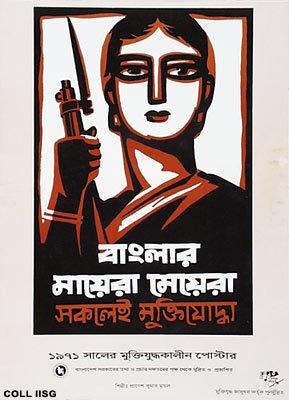
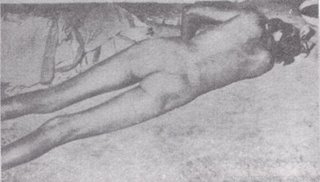
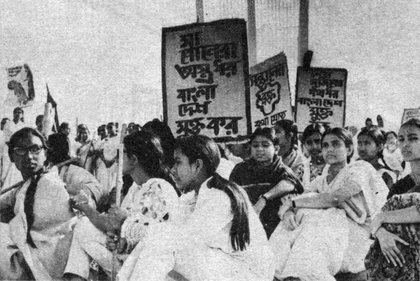
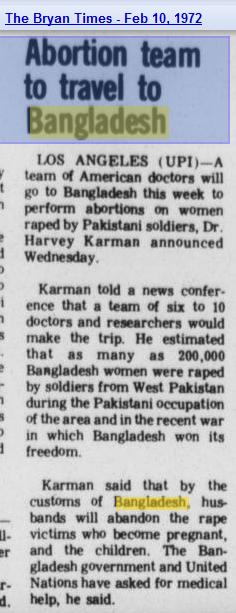
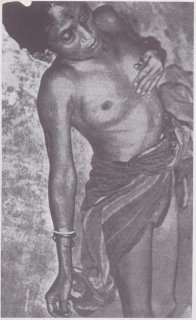
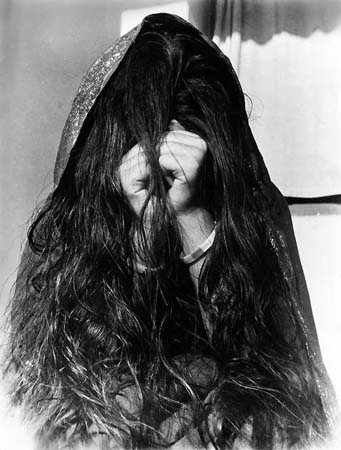





» বীরাঙ্গনা নারী এবং যুদ্ধ শিশুরাঃ পাপমোচণের সময় এখনই»মুক্তমনা বাংলা ব্লগ:
[...] এম এ হাসানের তার প্রবন্ধ 'The Rape of 1971: The Dark Phase of History' তে বলেন যে, সারা দেশের গর্ভপাত [...]
Posted on January 25th, 2009 at 11:51 pm